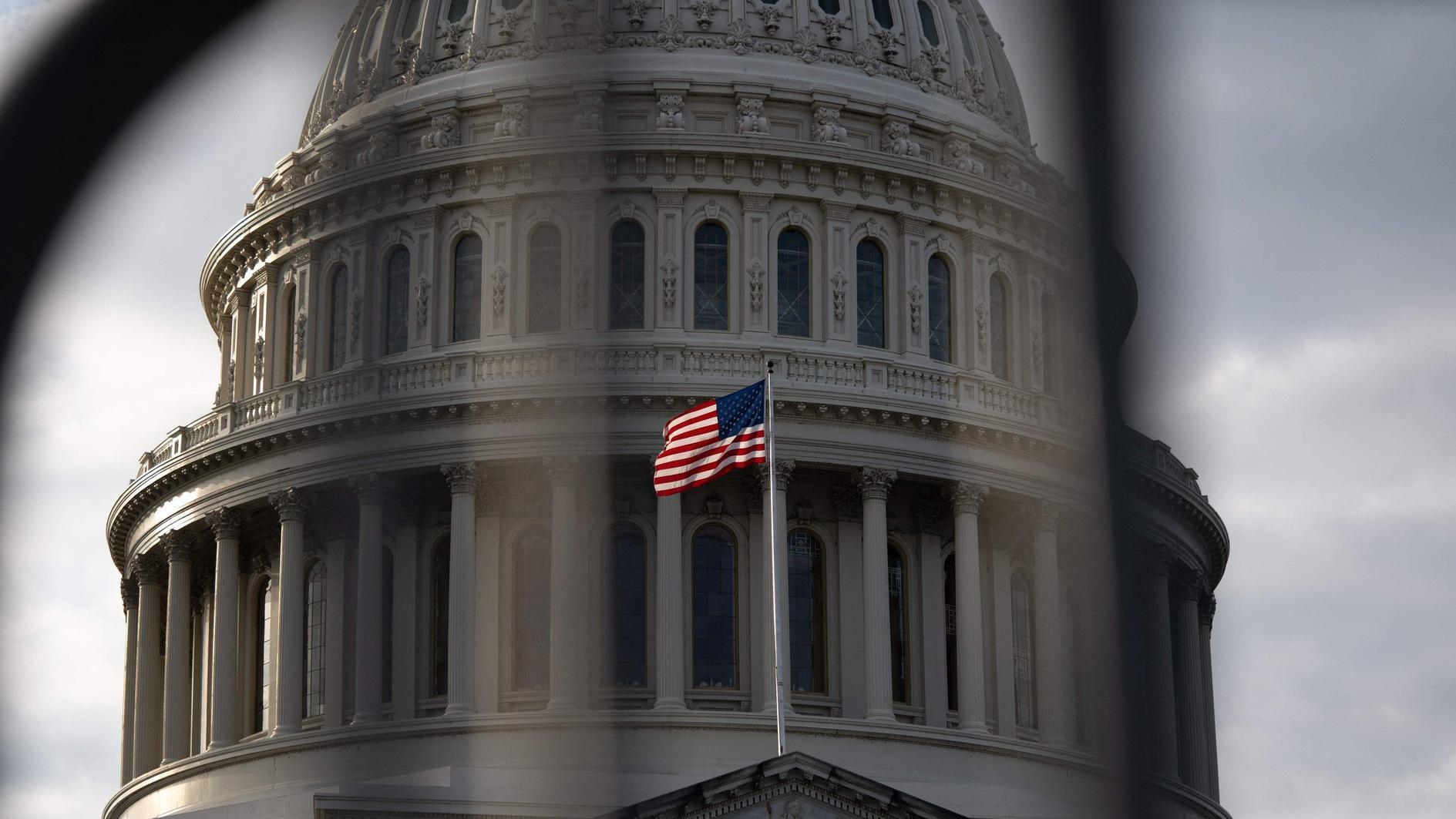
The U.S. Capitol is pictured ahead of a vote on a revised continuing resolution bill in Washington, DC, on Dec. 19, 2024.
The U.S. House of Representatives on Thursday overwhelmingly rejected a Republican-led funding bill aimed at averting a government shutdown, with federal agencies due to run out of cash on Friday night and cease operations starting this weekend.
The contentious legislation would have kept the government open through mid-March and suspended the country's borrowing limit for President-elect Donald Trump's first two years in office.
But dozens of debt hawks in the Republican ranks — unhappy about allowing the national debt to rise unchecked for half of Trump's term — rebelled against their own leadership to sink the package.
It marked a defeat for the Republican leader, who with tech billionaire Elon Musk — his incoming "efficiency czar" — had thrown his weight behind the plan.
And with party leaders announcing no further votes in the House on Thursday, the race to keep the lights on and prevent 875,000 non-essential workers being sent home over Christmas without pay is set to go down to the wire.
"We will regroup and we will come up with another solution, so stay tuned," Republican House Speaker Mike Johnson — who led the negotiations — told reporters.
The bill was supposed to fix a mammoth bipartisan package that Trump and Musk sabotaged on Wednesday amid conservatives' complaints about unrelated items in the text ballooning its overall cost.
The retooled version was considered under a fast-track method that required two-thirds support but Democrats refused to help Republicans overcome their rank-and-file rebels and it failed to win even a straightforward majority.
"The... proposal is not serious, it's laughable. Extreme MAGA Republicans are driving us to a government shutdown," Democratic Minority Leader Hakeem Jeffries said ahead of the vote. The White House described it as a "giveaway for billionaires."
Republicans will likely try again Friday with a more pared-down bill, although the party leadership offered no clear path forward, telling reporters they would have to meet to discuss a Plan C.
Funding the government is always fraught and lawmakers are under pressure this time around because they failed to agree on full-year budgets for 2025 despite months of negotiations.
Party leaders had landed on a stopgap bill — known as a "continuing resolution" (CR) — to keep operations functioning through mid-March.
Major Trump donor and ally Musk spent much of Wednesday bombarding his 208 million followers on X with posts trashing the deal, and amplifying complaints from debt hawks in the House who balked at numerous expensive add-ons shoehorned into the package.
Twelve hours later, Trump, who appeared to be playing catch-up, began threatening the reelection prospects of Republicans thinking of supporting it and demanding out of the blue that the bill increase or even scrap the country's debt limit.
Speaker under fire
Government functions are due to begin winding up at midnight going into Saturday, with non-essential workers at risk of being furloughed without pay while essential staff toil through the holidays without a paycheck.
Johnson has been facing criticism from all sides for his handling of the negotiations and his speaker's gavel looks likely to be under threat when he stands for reelection in January.
The Louisiana congressman appeared to have misjudged his own members' tolerance for the original CR's spiraling costs, and for allowing himself to have been blindsided by Musk and Trump.
Democrats, who control the Senate, have little political incentive to help Republicans and Jeffries has insisted they will only vote for the bipartisan package, meaning Trump's party will have to go it alone on any further efforts.
This is something the fractious, divided party — which can afford to lose only a handful of members in any House vote — has not managed in any major bill in this Congress.
While voicing frustration over spending levels, Trump's main objection to the original CR was that Congress was leaving him to handle a debt-limit increase — invariably a contentious, time-consuming fight — rather than including it in the text.
President Joe Biden's spokeswoman Karine Jean-Pierre said the veteran Democrat "supports the bipartisan agreement to keep the government open... not this giveaway for billionaires that Republicans are proposing at the 11th hour."